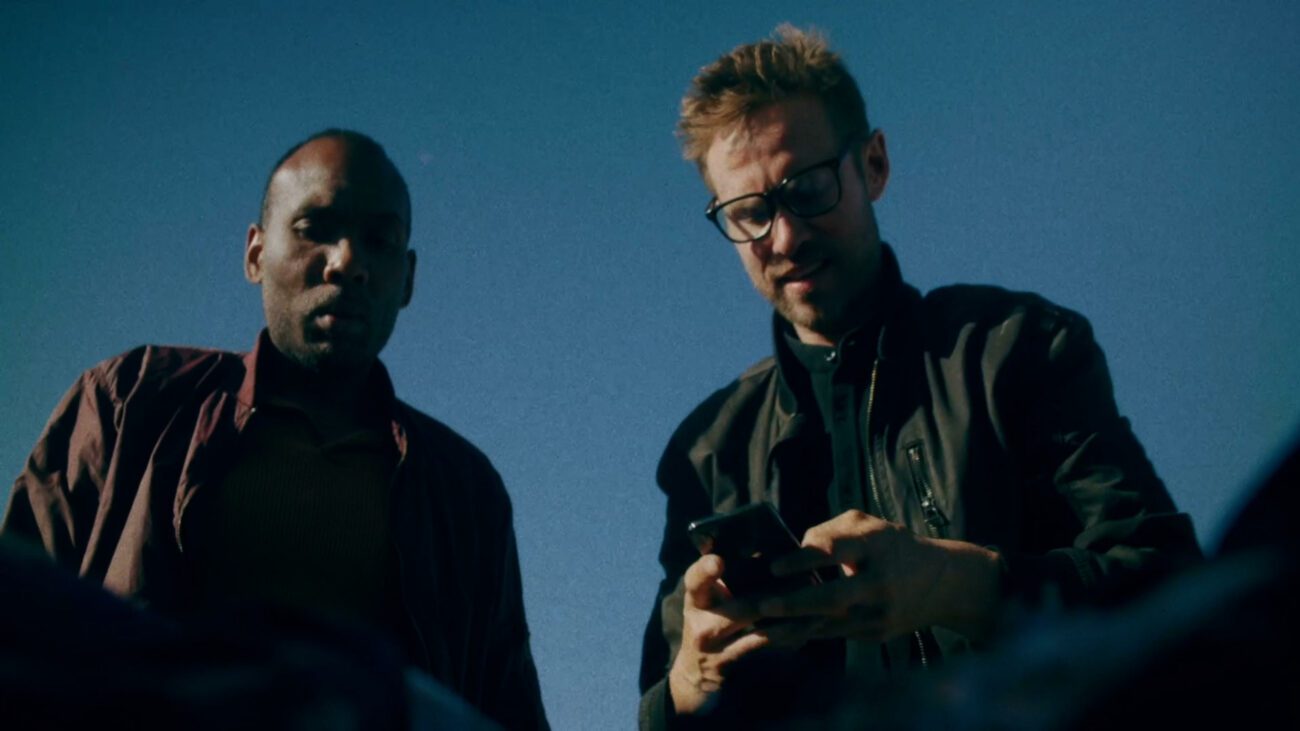The return of the legendary Hammer studio brought an ear-to-ear grin to my face with the announcement of Doctor Jekyll in 2020. Hammer is responsible for a plethora of monster films, including some based on the Universal creations, usually with an unequivocal look of Technicolor and a propensity for a deeper macabre than the monster tales from Hollywood, hinged on extensive gore and schlock. Hammer’s unique take on monsterdom is historic, and their reviving first film should only add more to their infamy.
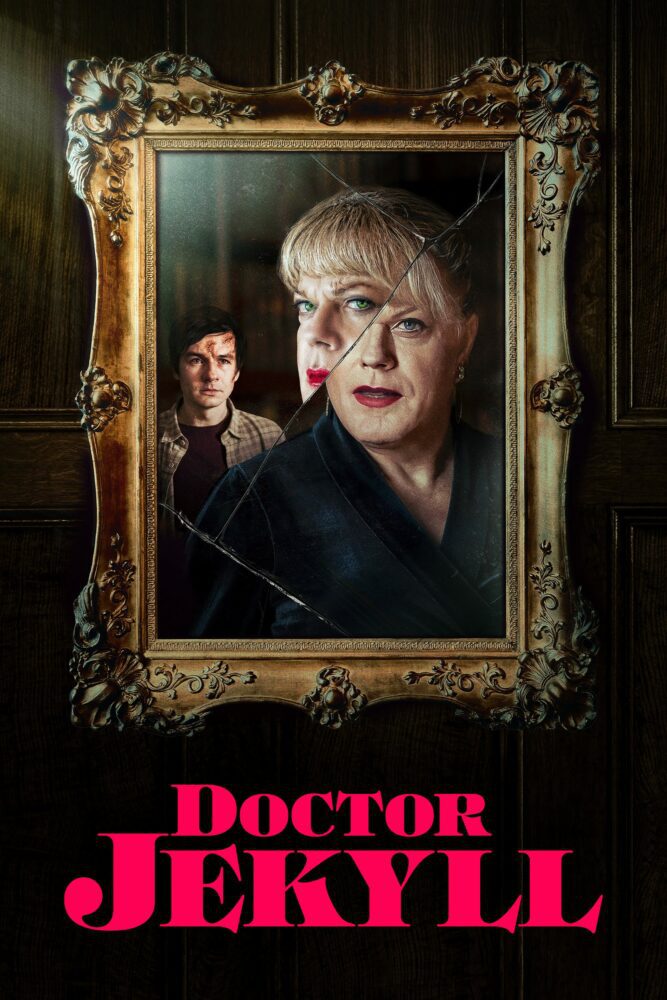
Proving they weren’t just phoning in their return, Hammer hired Eddie Izzard (who has respectfully requested to be referred to as Suzy) as the lead of their multifaceted movie based on the Robert Louis Stevenson novel. The Jekyll and Hyde storyline is one of duality within one’s self, and the opportunity to introduce a trans character into a role burgeoning with layers of sensitivity and nuance captured my imagination when this project first went into production, and long before it ever graced the screen.
In this iteration, Izzard plays billionaire pharmaceutical CEO Nina Jekyll, whose experimental endeavors and penchant for pulling a Martin Shkreli to raise the company’s stock prices have driven her from the boardroom and into a reclusive status at her captivatingly robust country estate. Looking for home care assistance to aid in her day-to-day, Nina hires Rob (Winnie-the-Pooh: Blood and Honey II’s Scott Chambers), a paroled thief looking to get his life back on track with the aim of meeting and caring for the daughter who was born while he was incarcerated.
Despite the film being quickly set up in the classical vein, or even in the revisited accompanying work of Valerie Martin’s Mary Reilly, Doctor Jekyll never firmly places itself within traditional expectations. Rob postures as a servant character who bears witness to Nina’s madness, but the film remains agnostic against a good versus evil plotline. The movie infers the sundowning of a once visionary doctor while detailing a modern parallel in the gap between billionaires and the lower class. Jekyll’s bevy of painkillers and medications are openly displayed, with explicit instructions given to provide or deny them at Nina’s leisure. This is juxtaposed against Rob’s story, who can’t afford medical treatment for his ailing daughter.
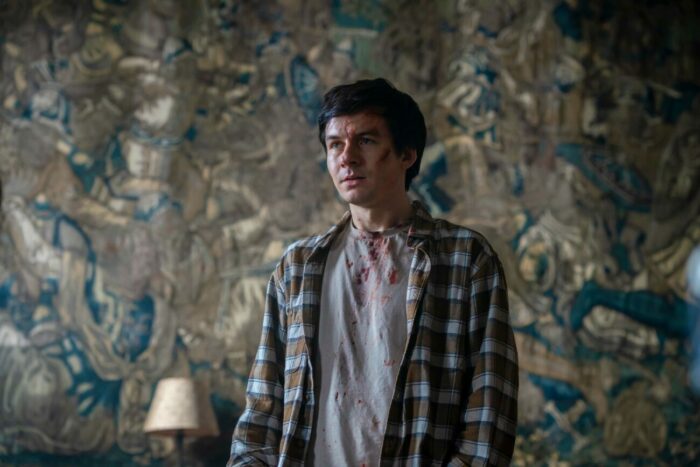
Multiple other examples of classism persist throughout Doctor Jekyll, as well as discussion topics ranging from addiction, treatment, and the differences between greed when someone’s life is at risk against theft necessary to keep someone alive. However, these concepts never fully form. We have Nina’s valet, Sandra (Lindsay Duncan), spewing bias and vitriol toward Rob, even adding him as a criminal in her phone, without ever getting to know him. Nina later does the same after Rob’s gift of sugary cereal goes awry. However, the solace of catharsis in Doctor Jekyll is exchanged for a twist. It’s a hell of a twist at that. And, for what the film is, it boldly works to shock the viewer.
Yet, Doctor Jekyll also comes across as somewhat unsatisfying to my horror-enthusiast side. Overall, Doctor Jekyll is an enjoyable horror film, but it’s far different from the maniacal dissociated creature John Barrymore or Fredric March played. The ‘mad scientist’ concept of a doctor looming over beakers and pipettes drifts into the twenty-first century, where potions are traded for special cigarettes, and the film is poised as a more melodramatic allegory of greed with nepotistic trimmings.
Stephenson’s version attempts something new by introducing a trans character but never really provides Izzard a moment to articulate the societal dichotomy of her character. This feels like a missed opportunity to embolden and understand Nina Jekyll, who straddles multiple worlds. It isn’t hard to consider the courage it would take for a trans-woman to make it onto a board of directors, but a reminder of how she may have needed to use her fury to make a guard of older men listen could have been profoundly resonating. Plus, Jekyll’s ethos could have been affixing since we’ve learned she’s been ousted from that board, especially when matched with Rachel Hyde’s unrestrained behavior.
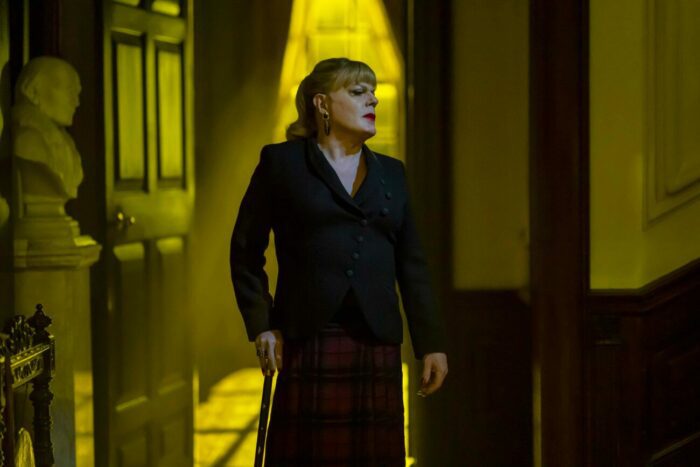
I’ve long been a fan of Izzard, who crafts a magnificent comedic show for her audience, resonating in historical and literary jokes as they relate presently. Some of that even shines through here in director Joe Stephenson’s film when Nina quips about the origin of Rob’s daughter’s name. The freedom Stephenson bestows on Izzard allows room for what she does best. Of the rare film appearances Izzard has made in the past, I can’t say she’s ever had the opportunity to stand out. But in Doctor Jekyll, once Izzard is on screen, the camera adores her. And, when she’s gone, the audience notices. Izzard’s duality in the role, mixed with her own blend of satirical whimsy, allows her a sandbox for Stephenson’s playful cat-and-mouse game, helping Izzard turn in a devilishly delightful performance.
Other notable standouts in the production include Blair Mowat’s arresting score, filled with booming orchestration and powerful choir elements that occasionally challenged my speaker system. Mowat’s score feels like an old-fashioned monster film, and it works to deliver a more transfixing experience, invoking a heart-pounding crescendo that keeps us on the edge of our seats through transitioning scenes. The film’s cinematographer, Birgit Dierken, should also be mentioned for how they’ve allowed glorious streaks of light to invade the robust shadows of the mansion’s location, not to mention the dense yellow fogs Dierken captures that inject an instinctive isolation into the film’s atmosphere.
All of this amounts to an almost contradictory experience. Some will love how Doctor Jekyll revamps the story into a realistically modern take on two-faced privilege. Contrarily, others will have similar musings about how far away the film has traveled from Hyde’s primal nature. Stephenson’s rendition turns Hyde into more of a demonic entity and embeds the character in a messy vision of cultural issues. Hyde certainly proves she’s willing to do whatever it takes to get what she wants by the end of the film. Yet, in that final twist, I think people will ultimately fail to connect with Stephenson’s film, where the concept of human barbarism and hedonistic pursuits is entertained as more of a supernatural concept rather than something innately buried and easily accessible within all of us.
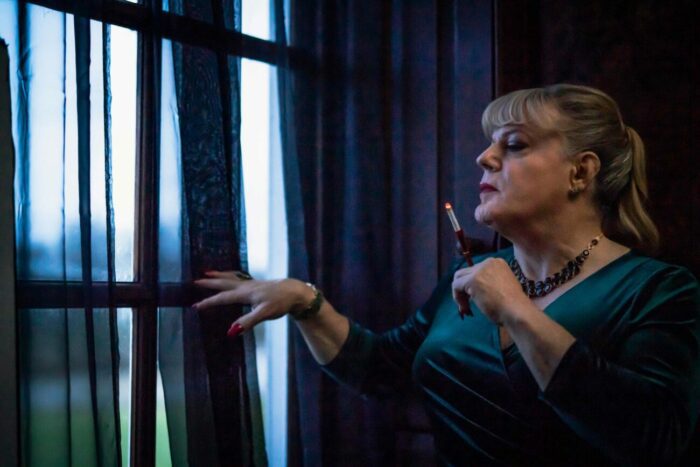
Doctor Jekyll remains an extremely gothic film with limited locations and a modest budget. It attempts to connect the monsters of the world with the story unfolding on screen. The result leaves something to be desired in my eyes. It isn’t without merit, since Izzard is irrefutably sensational as Nina Jekyll. But given the storyline, it isn’t as arresting as it could be in a real-world dramatic sense. I sincerely hope Izzard continues to find high-profile roles like this in the future. She’s truly the heart of the film.
At the start of this article, I said that Doctor Jekyll would only add to Hammer’s infamy, and I stand by that. Hammer has challenged audiences with queer concepts in horror before with Frankenstein Created Woman (1967), Lust for a Vampire (1970), Twins of Evil (1971), and even with the same source material in 1971’s Dr. Jekyll and Sister Hyde. No matter what you end up thinking of this film, Hammer’s legacy for delivering gender-bending, androgynous, queer, and inclusive storytelling continues to grow. They celebrate their 90th anniversary this year.
Doctor Jekyll is now available on PVOD in the UK.



